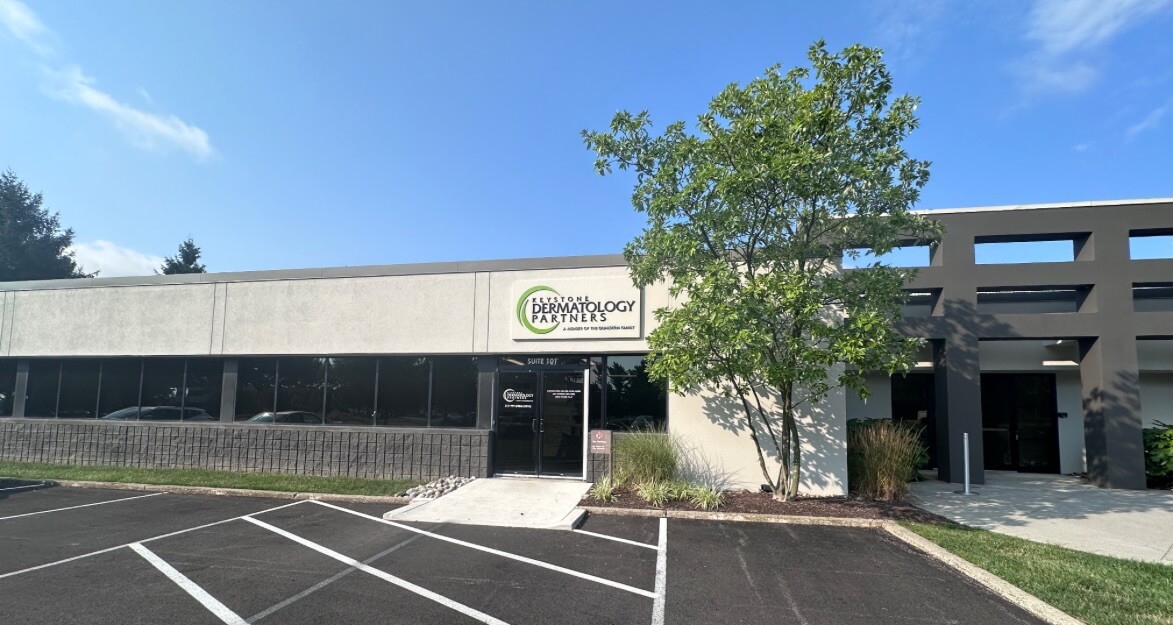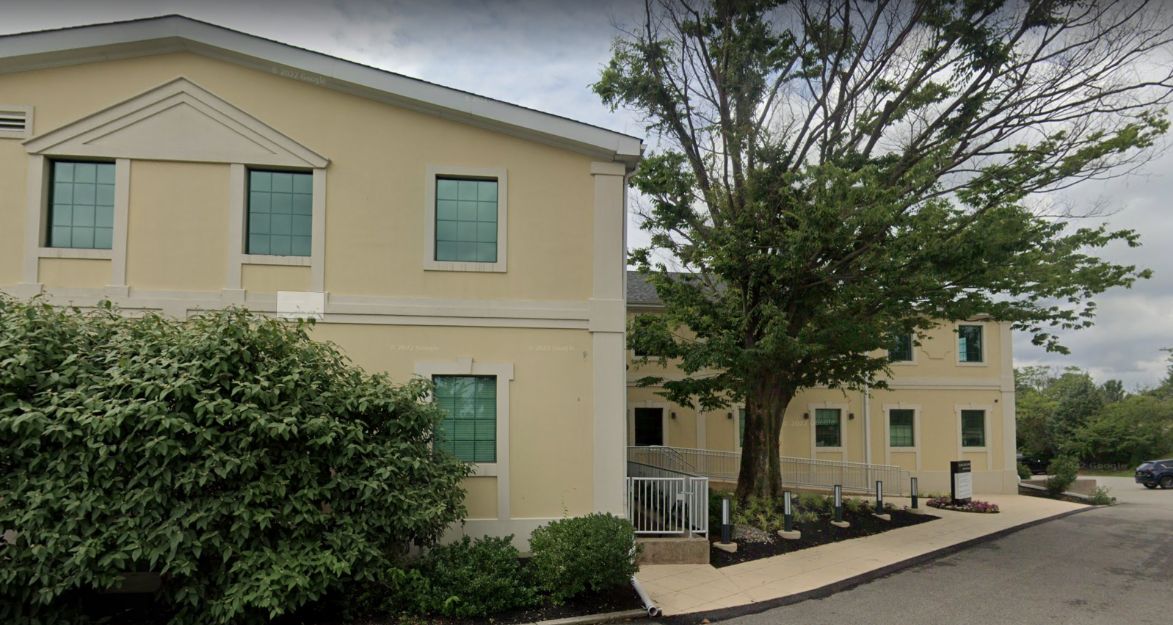Rosacea
Understanding Rosacea: Symptoms, Causes, and Care
Rosacea is a common skin condition that leads to persistent flushing or redness, primarily on the face. It may also cause visible blood vessels, small pus-filled bumps, and a rough or swollen appearance. Rosacea can be easily mistaken for acne, dermatitis, or other skin issues due to its similar symptoms, but it requires its own specific treatment approach.
Rosacea typically affects the central face, including the cheeks, nose, chin, and forehead, and may sometimes extend to the neck and chest. The condition can also impact the eyes, causing irritation, dryness, and redness, a form known as ocular rosacea. While the exact cause of rosacea is not fully understood, triggers may include sun exposure, stress, hot or cold weather, spicy foods, alcohol, and certain skincare products.
At Keystone Dermatology Partners, our team of expert dermatologists can help diagnose and manage rosacea with a tailored treatment plan to reduce flare-ups and manage symptoms. If you experience ongoing redness, facial flushing, or discomfort around the eyes, schedule a consultation with Keystone Dermatology Partners today. Let us help you regain your confidence and maintain healthy skin.
Examples of Rosacea
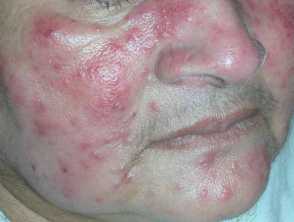
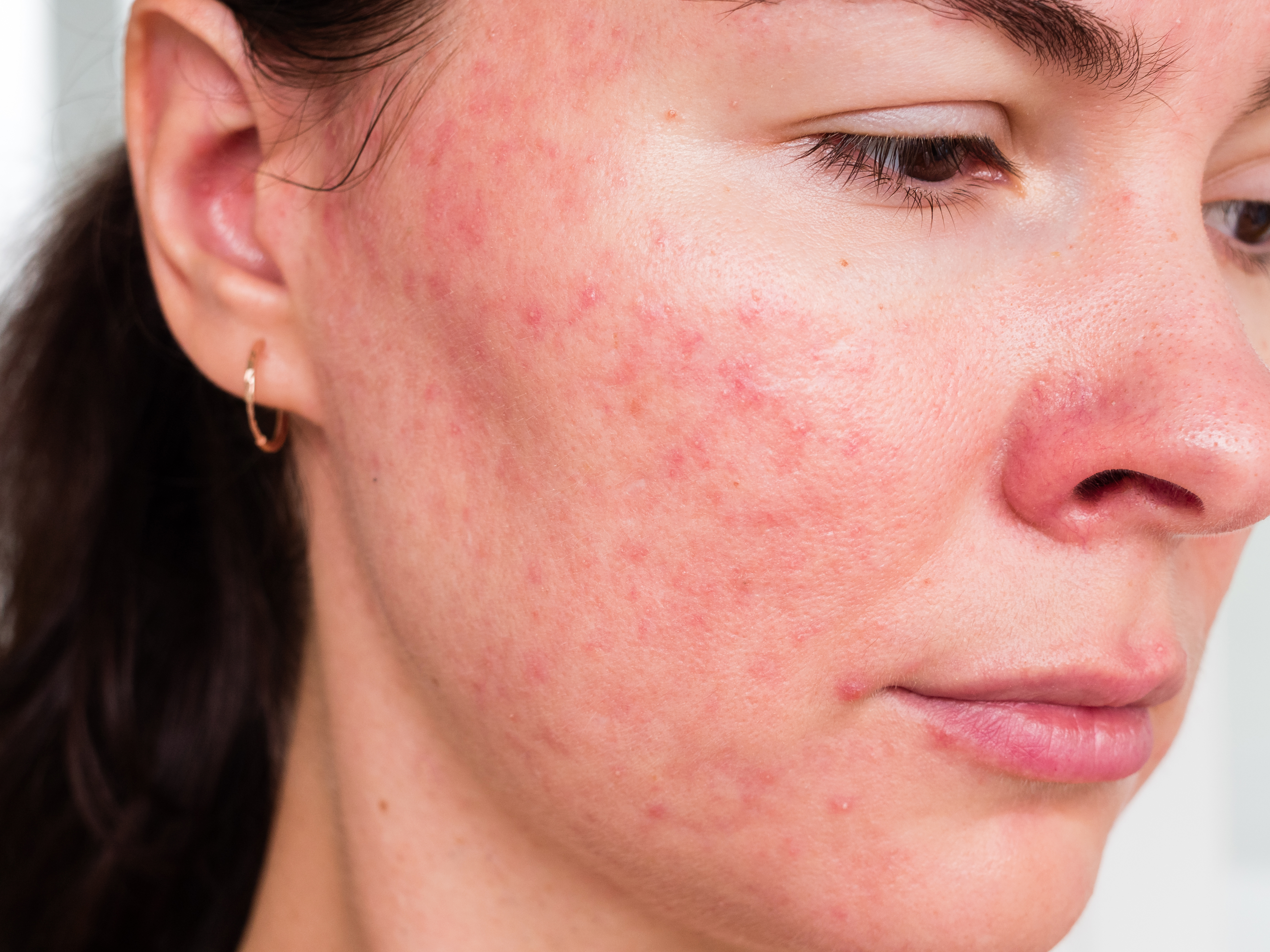
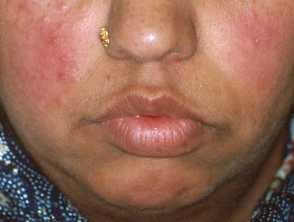
Symptoms of Rosacea
- Redness
- Visible blood vessels
- Small pus-filled bumps
- Eye irritation
- Dryness
- An increase in skin thickness
- A stinging or burning sensation
What Triggers Rosacea?
- Exposure to sunlight
- High temperatures
- Stress
- Alcohol consumption
- Spicy foods
- Exercise and other strenuous activities
The Different Types of Rosacea
There are several categories of rosacea, each of which presents with its own specific symptoms. These are the four general categories of rosacea:
Erythematotelangiectatic Rosacea: Redness, visible blood vessels, facial flushing, and a burning and stinging sensation.
Papulopustular Rosacea: Redness, swelling, small red bumps or pimples, and a tender or hot sensation.
Phymatous Rosacea: Thickening of the skin, along with a bumpy texture.
Ocular Rosacea: Eye irritation, redness of the eyes, swelling of the eyelids, and a dry and itchy sensation.
Rosacea FAQs
Identifying and avoiding triggers like spicy foods, alcohol, and extreme temperatures can help manage flare-ups. A gentle skincare routine, including mild cleansers and moisturizers, is essential.
You can still wear makeup with rosacea, but it's crucial to choose products designed for sensitive skin. Mineral-based or hypoallergenic makeup is often a good choice. Consult with a dermatologist for recommendations.
Sunscreen is crucial for rosacea-prone skin. Opt for a broad-spectrum, SPF 30 or higher sunscreen, and apply it daily. Sun protection helps prevent flare-ups triggered by sun exposure.
Rosacea is a chronic condition, but with proper management and treatment, symptoms can be controlled. Working with a dermatologist to find an effective treatment plan is essential.
From our QualDerm Family of Brands: Sunscreen Tips
Treatment for Rosacea
If you are in need of professional care to treat your rosacea symptoms and prevent flare-ups, visit Keystone Dermatology Partners in Philadelphia. During a consultation at our office, we will be happy to answer any questions you may have.
Related Blogs

- Skin Cancer
- Sun Safety
When it comes to sunscreen, does a bigger (higher) SPF number mean its better than one with a smaller one? Discover the effectiveness of your sunscreen and what SPF you should be applying.
Read More
- General Dermatology
- Skin Care
Read this blog to explore the connection between chocolate consumption and acne.
Read More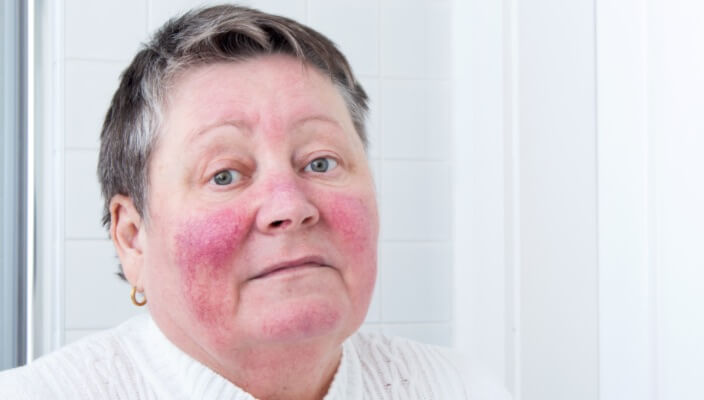
- General Dermatology
- Skin Care
Rosacea is a common skin condition characterized by facial redness and pimples. A recent study suggests that drinking caffeinated coffee may reduce the risk of developing rosacea, highlighting a potential benefit of coffee consumption.
Read More
